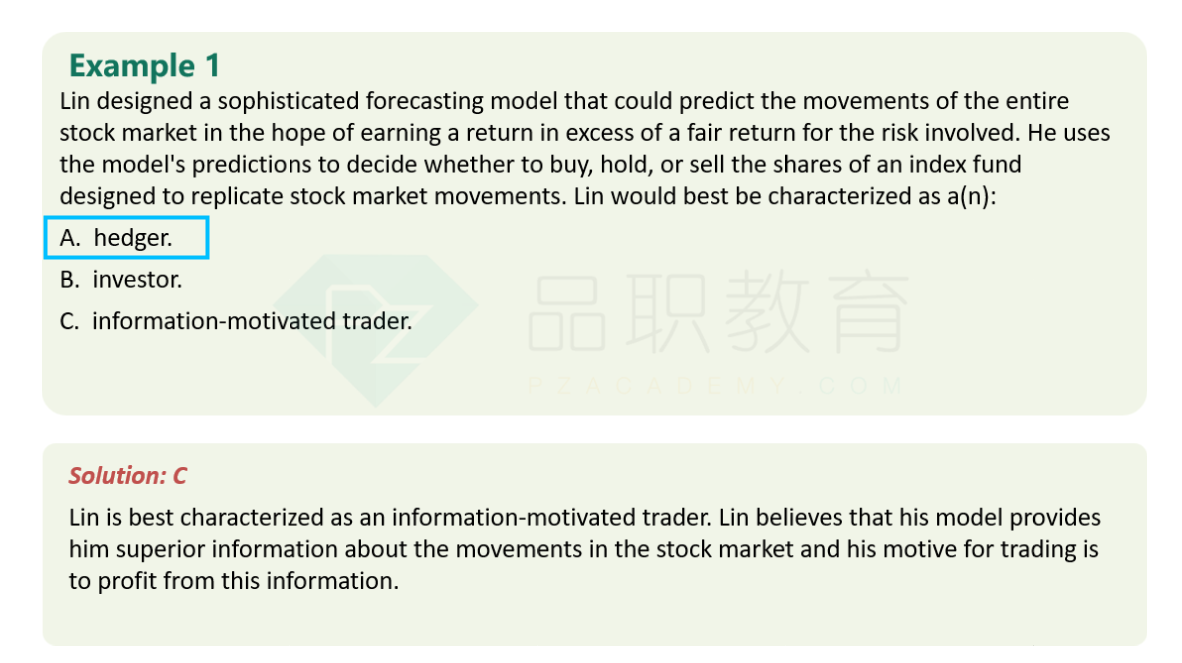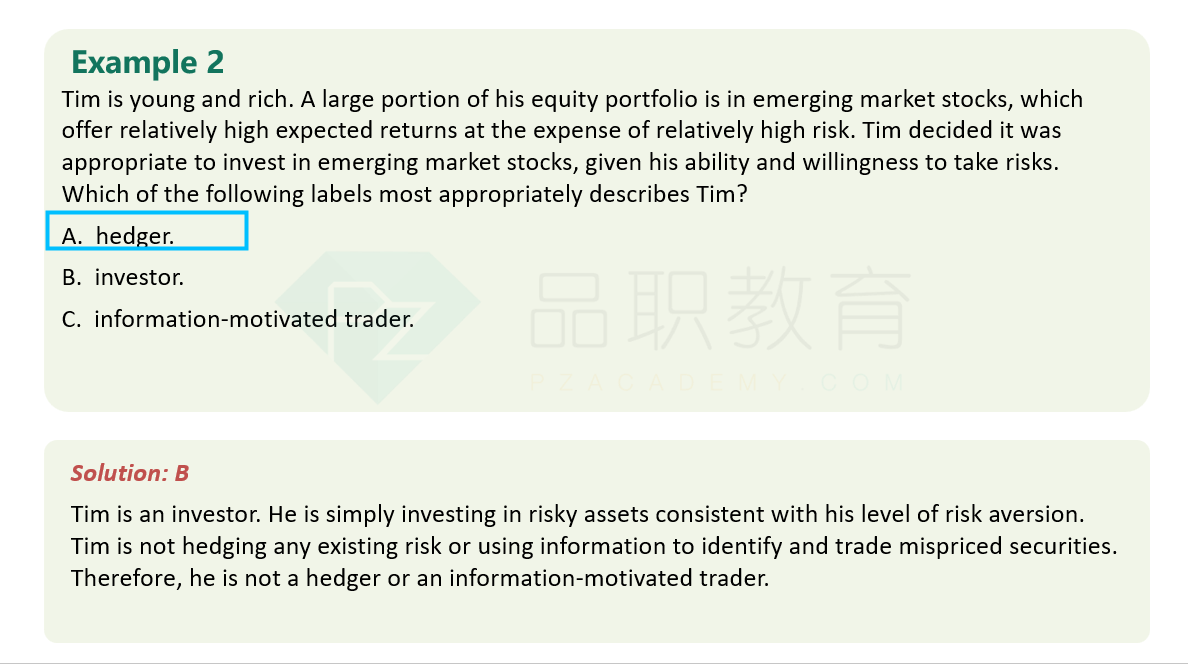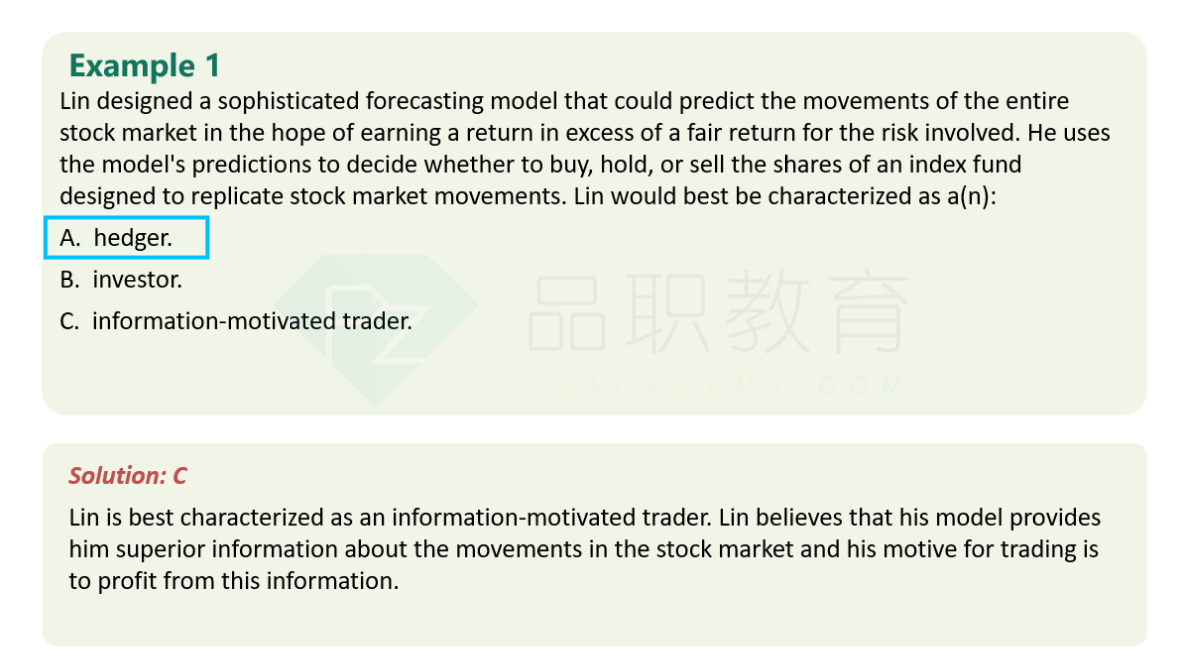NO.PZ2015122802000003
问题如下:
Lisa Smith owns a manufacturing company in the United States. Her company has sold goods to a customer in Brazil and will be paid in Brazilian real (BRL) in three months. Smith is concerned about the possibility of the BRL depreciating more than expected against the US dollar (USD). Therefore, she is planning to sell three-month futures contracts on the BRL. The seller of such contracts generally gains when the BRL depreciates against the USD. If Smith were to sell these future contracts, she would most appropriately be described as a(n):
选项:
A.hedger.
B.investor.
C.information-motivated trader.
解释:
A is correct.
Smith is a hedger. The short position on the BRL futures contract offsets the BRL long position in three months. She is hedging the risk of the BRL depreciating against the USD. If the BRL depreciates, the value of the cash inflow goes down in USD terms but there is a gain on the futures contracts.
考点:Intermediaries Of Financial Market
hedger和投资者不同,它投资金融资产不是为了赚取利润,而是为了规避风险。通常对冲者手里是已经持有一定的资产的,但是担心手里这些资产未来价格会下跌,所以通过购买衍生产品来规避这些资产日后真的下跌时的风险。比如农民伯伯(hedger)为了规避自己种的粮食未来价格下跌的风险而进入期货交易。
这道题目很明显可以看出LISA是美国一家制造企业的老板,该企业生产的货品都销向巴西,由于担心巴西利拉贬值,进入了一个期货合约,因为他是从业务角度为潜在风险进行对冲,所以是hedger。
原版书关于hedger的定义是:In general, hedgers trade to offset or insure against risks that concern them. In addition to forward contracts, they may use futures contracts, option contracts, or insurance contracts to transfer risk to other entities more willing to bear the risks. Often the hedger and the other entity face exactly the opposite risks, so the transfer makes both more secure, as in the grain example.
这个hedger的知识点在讲义的哪里







